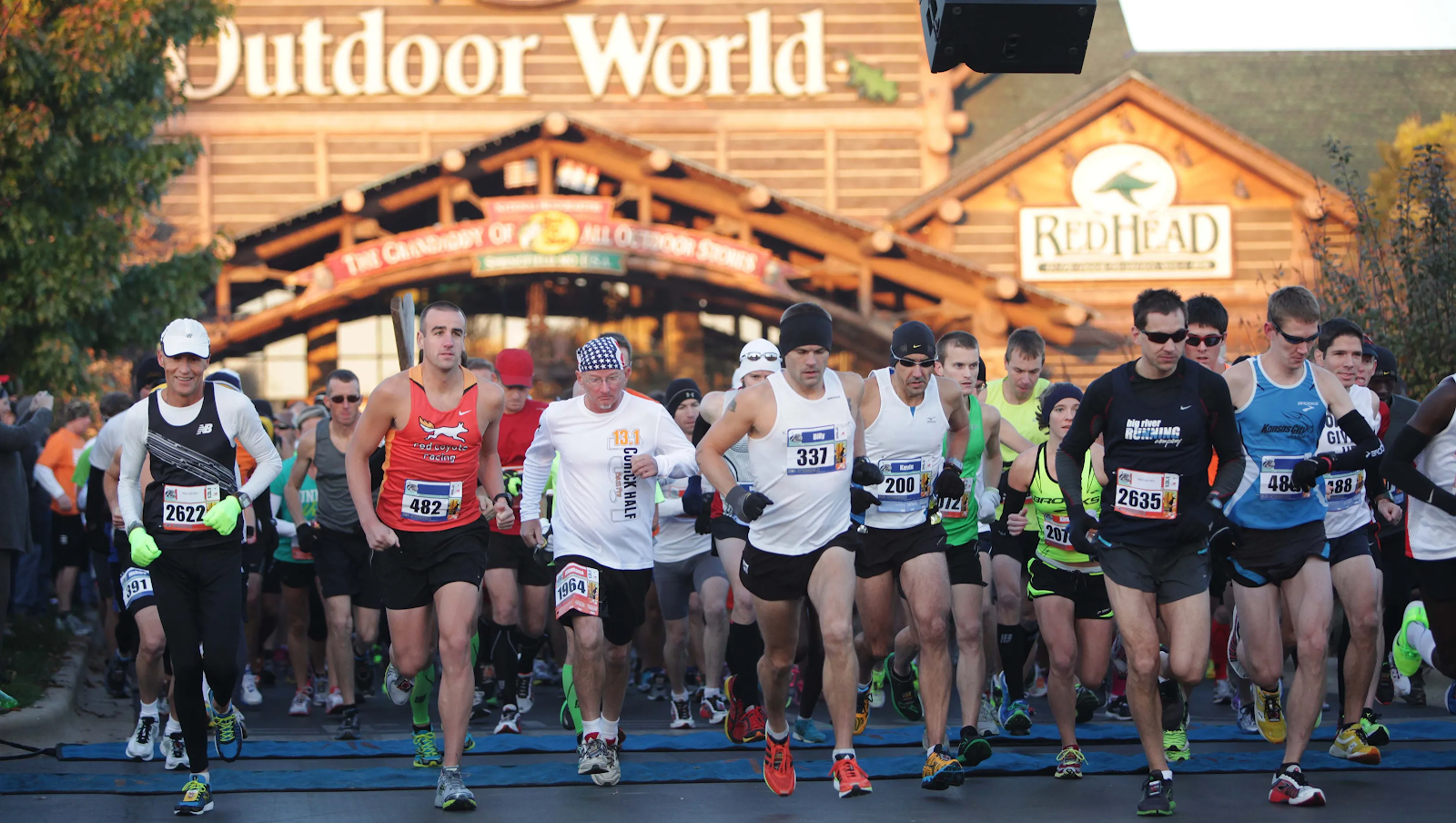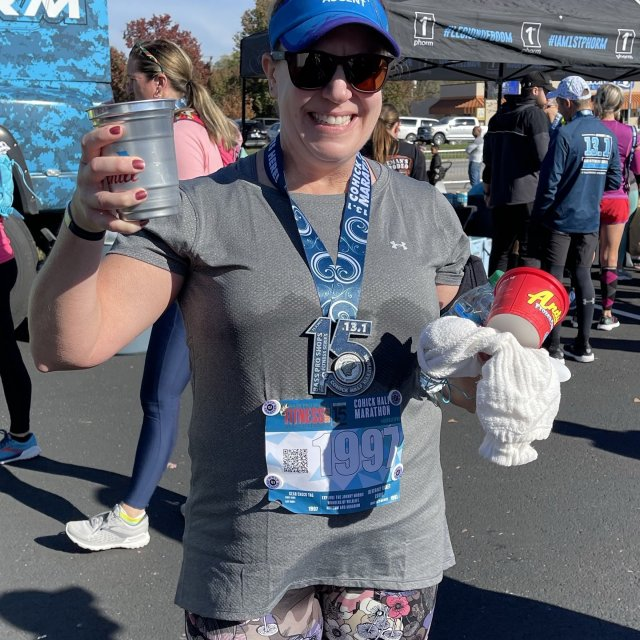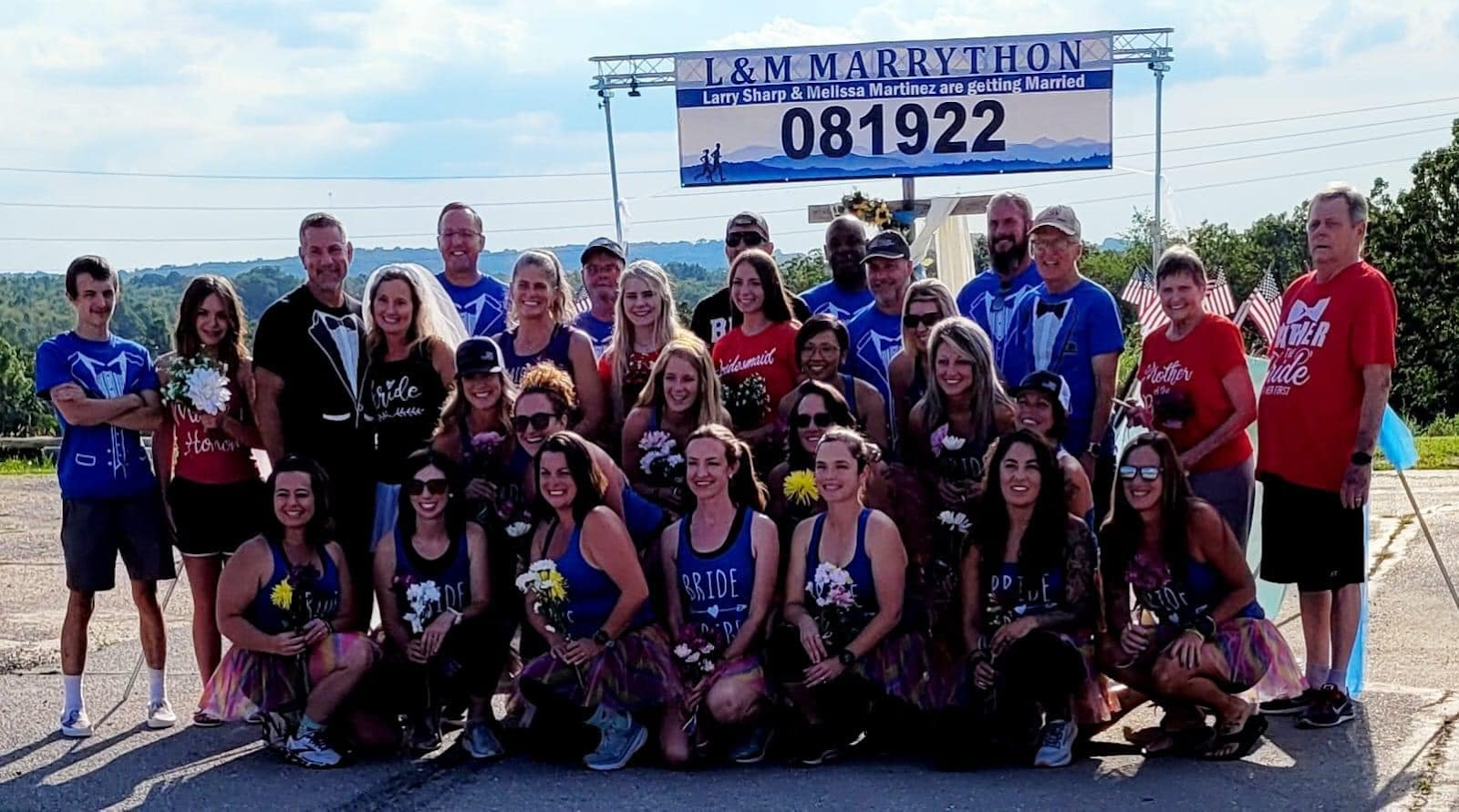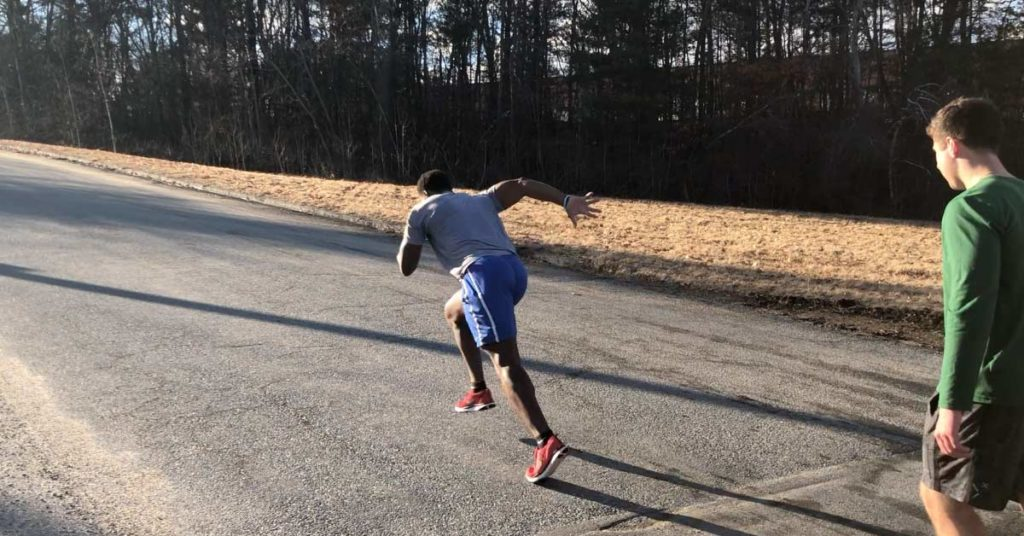Hello runner friends!
Welcome back to the Bass Pro Fitness Series
MIDWEEK M😊TIVATI😊N blog!
Now let's get started by talking about being prepared for race day, keeping in mind that there's more to being ready to step up to the start line than putting in the miles. That is, if you really want to enjoy the entire experience. What exactly do I mean by that you might be wondering? Well, as someone who has run nearly 100 marathons and countless halves and ultras, I'll tell you that the whole race weekend can be fun if you plan ahead.
So if you're participating in the official Bass Pro training groups, you're going to learn everything you need to know to get from the start line to the finish line, whether you're running 13.1 miles or 26.2. But that doesn't mean you won't be anxious, especially if it's your first marathon or half. In an effort to ease that anxiety, here are just a few extra tips in no specific order that I hope will help to make your Bass Pro Fitness weekend the best that it can be.
1. Lay out the clothing that you will wear the night before including placing your race bib and safety pins with your clothing. Do not wear a new outfit for the race — 26.2 miles is a long way to run if something is chafing you. A clothing tag can become a painful enemy very quickly. *if you're traveling with younger children or people you don't want to wake up, put these items in the bathroom so you can easily slip in and out without disturbing anyone.
2. Do not wear new shoes in the marathon. Wear a pair that you have worn during a few long runs (as long as they did not create any problems). Remember, nothing new on race day ever!
3. Be prepared for anything. Fill a gym bag with your essentials and pack a few extra items like a comfortable outfit to wear home, extra pair of socks (a long pair of socks with the toes cut out can double as disposable arm warmers), hat or cap, anti-chafe cream and diaper rash cream for post race chafing. Check the weather conditions before you leave.
4. Arrange to have dry clothes at the finish line and a pair of flip-flops or sliders. As you can imagine, your feet are going to be sore after pounding the pavement for 13.1 or 26.2 miles. Letting your feet air out and giving your toes some wiggle room is a totally underrated experience. Personally, I consider this a "reward" after every long run. And another great way to reward yourself? Wear your race shirt home AFTER you've earned it. It makes putting it on all the sweeter.
5. Plan to hang around for a little bit. While there may be no better feeling than crossing the finish line on race day, watching others do so comes in a very close second. Cheering on the other runners is a totally underrated pleasure. This is something I began doing many years ago and it always brings a smile to my face.
6. Don't spend hours on your feet at the race expo. Despite all of the vendors, it's important to save your legs for the next day.
7. By now you should have perfected your routine you used before your long runs. This is the same routine you should use the night before the race. Eat the same meal at the same times you've practiced, and make sure you're well hydrated.
8. Plan when you will leave, how you will get to the race, and where you will park. You don't want to fear getting lost or being late prior to the race. You'll have enough anxiety as it is. Plan every detail of your morning from waking up, to dressing, to getting out the door and to the start line.
9. In addition to water, Bass Pro will have gels and electrolyte drinks on the course. If you haven't practiced using these products during your long runs, don’t use them on race day. Even small differences in sugar concentration can cause stomach upset during an event. Bring your own supply that you practiced with on race day.
10. Review the map of the course and find the locations of water stops, aid stations, and portable toilets so you can plan accordingly. Also, plan for your family to meet you at various spots on the course. You'd be surprised at how powerful a friendly high-five or hug can be in raising your spirits.
11. No matter what the temperature is when you get up, chances are that it will increase during the race. You'll generate a lot of heat while running but it will most likely be cold at the start. You might want to wear old clothing that you can discard once you are warmed up (I buy used jackets, sweatshirts and bathrobes at the thrift store for this very purpose). Don't worry... the volunteers will pick up the items but it's always kind to leave them in a convenient spot (like at an aid station or a mile marker).When you discard things though, be careful not to throw them in the path of another runner.
12. Arrive at the start expecting to find a line at the portable toilets. Since you have time to spare, don’t be stressed but get in line just in case. Head to the start about 5-10 minutes before race time and put yourself in an appropriate spot in the pack. The start of races is crowded and fast (especially the closer you are to the lead runners) so be ready. Don't take off too fast! The pack will thin out quickly, and a slow start will give you a chance to warm up your muscles and get motivated mentally. And a word for the wise... you can always make up for starting off too slow, but you can rarely recover from going out too fast. Start slowly!!
13. Enjoy the race. Smile for the people taking photos and videos, sing out loud, thank the volunteers, and wave to the fans as you run by. You'll enjoy yourself so much more! Make it your goal to finish with a smile on your face by keeping this in mind... you don't HAVE to do this. You GET to do this. Repeat that as often as you need to... I don't HAVE to do this, I GET to do this.
14. After the race, drink lots of water. Even though you drank during the race, you'll still be a little dehydrated and you'll need to flush your kidneys. Replenish carbohydrates quickly. There's a two-hour window following a hard effort during which absorption of carbohydrates may be enhanced. If you can't eat them, then drink them via chocolate milk or another protein drink (protein mixed in improves recovery). Don't choose anything extremely high in sugar or fat, it will cause stomach upset.
15. Keep moving that day. This will diminish a lot of the post-race stiffness. Stretch gently.
16. Don't plan on running during the week after the race. Walking, swimming or cycling at an easy pace will work well and is highly encouraged as it's active recovery. You may find that a massage is helpful for post-race stiffness as well. When you resume running, start easy — 30 minutes three to four times per week — and increase gradually from there.
17. Start planning for your next marathon. For real! Review your training and your race day performance; determine what worked well and what presented a problem. Adjust your training schedule accordingly. Experience is always the best teacher.
18. Allow your body to recover. An extreme endurance event like a marathon is incredibly stressful on the body. The body needs the rest; otherwise, problems such as injuries, fatigue, decreases in performance and immune suppression can result. One more thing... watch out for symptoms of what I refer to as Post Marathon Depression Disorder (PMDD). They include sadness, lack of motivation, and a "what am I gonna do now?" questioning attitude. This is completely normal since you just spent 10-16 weeks training for an event that's now over. See number 17!
19. Last but not least, share your accomplishments with others. Post those finish line photos and proudly hang up that medal where you friends and family can see it. After all, you're earned it!!
So there you have it friends. Those are just a few things you can do to make your Bass Pro Marathon/Half experience unforgettable. But whatever you do along the 13.1 or 26.2 mile course, have fun! For real! Life is short so don't take it too seriously. Run happy, count your blessings along the way, and be thankful that you can do something that most people can only dream about doing.


































